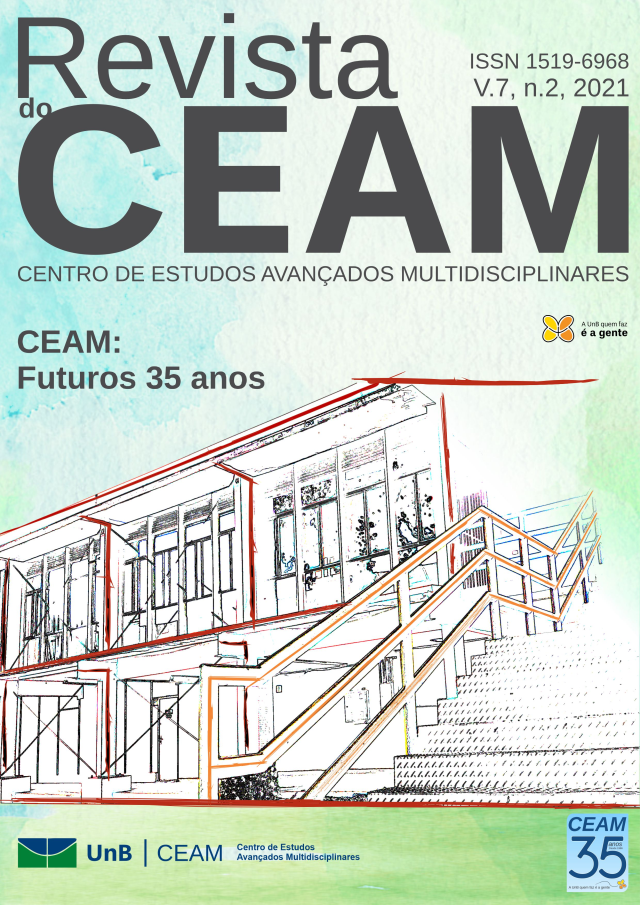The euphemization of female protagonism
the discrediting of the work done by women who move mountains for science and health in Brazil
DOI:
https://doi.org/10.5281/zenodo.5984804Keywords:
Brazil, Fragile Sex, Health, Resilience, Scientific Production, WomanAbstract
The article in emphasis aims to demystify the label of fragile sex attributed to the female figure in Brazil, by demonstrating the struggle of these protagonists in some of the most difficult work contexts to be part of, whatever the field of scientific production and the Cheers. That said, although it is clear that a considerable part of the female stereotype with regard to work comes from past and structural roots, the result of a country that was once patriarchal and essentially male, the propagation of such an ideal still in today's Brazilian society is the responsibility of the Tupiniquim citizen contemporary. Therefore, according to the aforementioned line of reasoning, when realizing the core of the problem, it is a duty and a collaborative commitment in line with both the man and the woman the search for the rupture of this crucial reality that remains afflicting the Brazilian social body. To achieve the purposes of this paper, research was used in a scientific database SciELO, CAPES, RT online, LILACS, as well as in government virtual portals.
Keywords: Woman. Scientific Production. Health. Fragile Sex. Resilience.
Downloads
References
ALVES, Josilene. SANTOS, Bruna. A Evolução da Mulher no Mercado de Trabalho: Comparação entre Ontem e Hoje.Fabe em Revista: Bertioga, 2016.
BARATA, Rita Barradas. Relações de gênero e saúde: desigualdade ou discriminação? In: Como e por que as desigualdades sociais fazem mal à saúde [online]. Rio de Janeiro: Editora FIOCRUZ, 2009. Temas em Saúde collection, pp. 73-94. ISBN 978-85-7541-391-3. Disponível em: http://books.scielo.org/id/48z26/pdf/barata-9788575413913-06.pdf. Acesso em: 7 jul. 2021.
BRASIL. Secretária Especial de Políticas para as Mulheres. As mulheres e o mercado de trabalho. São Paulo: CADERNOS DE FORMAÇÃO 3, 2017. Disponível em: https://www.eco.unicamp.br/images/arquivos/Caderno-3-web.pdf. Acesso em: 26 jul. 2021.
CAVALLINI, Marta. Mulheres ganham menos que os homens em todos os cargos e áreas, diz pesquisa. Globo.com: Portal G1, 2018. Disponível em: https://g1.globo.com/economia/concursos-e-emprego/noticia/mulheres-ganham-menos-que- os-homens-em-todos-os-cargos-e-areas-diz-pesquisa.ghtml. Acesso em: 31 jul. 2021.
ELSEVIER, Editoria. Gender in the Global Research Landscape: Analysis of research performance through a gender lens across 20 years, 12 geographies, and 27 subject areas. Brasil, 2017. Disponível em:
https://www.elsevier.com/ data/assets/pdf_file/0008/265661/ElsevierGenderReport_final_fo r-web.pdf. Acesso em: 9 jul. 2021.
HOFFMANN, Rodolfo; LEONE, Eugenia. Participação da mulher no mercado de trabalhoe desigualdade da rena domiciliar per capita no Brasil: 1981-2002. Revista do Departamento de Ciências Econômicas da UFMG: Belo Horizonte, 2004.
INSTITUTO BRASILEIRO DE GEOGRAFIA E ESTATÍSTICA, Diretoria de Pesquisas, Coordenação de População e Indicadores Sociais. Indicadores Sociais das Mulheres no Brasil. IBGE Educa. 2018. Disponível em: https://educa.ibge.gov.br/jovens/materias- especiais/materias-especiais/20453-estatisticas-de-genero-indicadores-sociais-das-mulheres- no-brasil.html. Acesso em 30 jul. 2021.
INSTITUTO BRASILEIRO DE GEOGRAFIA E ESTATÍSTICA. Diferença cai em sete
anos, mas mulheres ainda ganham 20,5% menos que homens. Editoria: Estatísticas Sociais. 2019. Disponível em: https://censo2020.ibge.gov.br/2012-agencia-de- noticias/noticias/23924-diferenca-cai-em-sete-anos-mas-mulheres-ainda-ganham-20-5- menos-que-homens.html. Acesso em: 28 jul. 2021.
LANCET, The. 2020: a critical year for women, gender equity, and health. United Kingdom: The Lancet, 2020. Disponível em: https://www.thelancet.com/action/showPdf?pii=S0140-6736%2819%2933170-8. Acesso em: 6 jul. 2021.
MADEIRA, Felicia. Estrutura do emprego e trabalho feminino no Brasil: 1920-1970.São Paulo: Cebrap, 1973.
OLIVEIRA, Elida. Mulheres são 40% dos pesquisadores do Brasil que declaram ter doutorado nas 5 maiores áreas de conhecimento, aponta levantamento. Globo.com: Portal G1, 2020. Disponível em: https://g1.globo.com/ciencia-e- saude/noticia/2020/02/12/mulheres-sao-40percent-dos-pesquisadores-do-brasil-que-declaram- ter-doutorado-nas-5-maiores-areas-de-conhecimento-aponta-levantamento.ghtml. Acesso em: 7 jul. 2021.
LADEM, UFJF. Diferença cai em sete anos, mas mulheres ainda ganham 20,5% menos que homens. MG: Rodrigo Paradella, 2019. Disponível em: https://www.ufjf.br/ladem/2019/03/20/diferenca-cai-em-sete-anos-mas-mulheres-ainda-ganham-205-menos-que-homens/. Acesso em: 6 dez. 2021.
PITANGUY, Jacqueline. Os direitos humanos das mulheres. Fundo Brasil de Direitos Humanos, [s. l.], p. 1-3, 2017. Disponível em: https://www.fundobrasil.org.br/downloads/artigo_mulheres_jacpit.pdf. Acesso em: 7 dez. 2021.
SOUZA, Camila. Dia Internacional da Mulher: conheça o fundo Federação Brasileira pelo Progresso Feminino. Arquivo Nacional, Ministério da Justiça e Segurança Pública. 2019. Disponível em: http://www.arquivonacional.gov.br/br/ultimas-noticias/1576-dia- internacional-da-mulher-conheca-o-fundo-federacao-brasileira-pelo-progresso-feminino. Acesso em: 30 jul. 2021.
WERMELINGER, Mônica; MACHADO, Maria Helena; TAVARES, Maria de Fátima Lobato; OLIVEIRA, Eliane dos Santos de; MOYSÉS, Neuza Maria Nogueira. A Força de Trabalho do Setor de Saúde no Brasil: Focalizando a Feminização. Rio de Janeiro: Trabalho publicado na Revista Divulgação em Saúde para Debate, No.45 maio 2010, pp54- 70, 2010. Disponível em: http://www.ensp.fiocruz.br/observarh/arquivos/A%20Forca%20de%20Trabalho%20do%20Se tor%20de%20Saude%20no%20Brasil%20.pdf. Acesso em: 9 jul. 2021.
Downloads
Published
How to Cite
Issue
Section
License
Copyright (c) 2021 Marcos Nunes Sampaio Júnior, Adriana Tedgue Ribeiro, Catarinha Espinheira

This work is licensed under a Creative Commons Attribution 4.0 International License.
Autores mantém os direitos autorais e concedem à Revista do CEAM o direito de primeira publicação, com o trabalho simultaneamente licenciado sob uma Licença Creative Commons - Atribuição 4.0 Internacional, permitindo o compartilhamento do trabalho com reconhecimento da autoria do trabalho e publicação inicial nesta revista.









